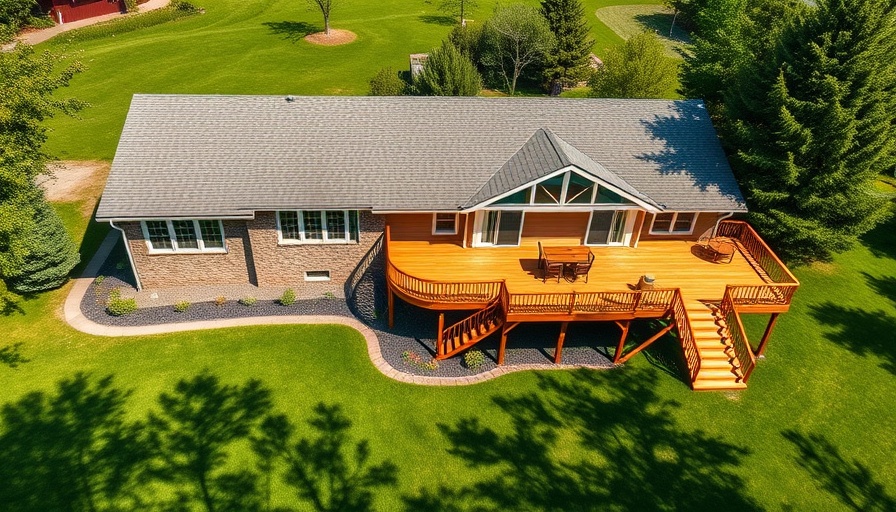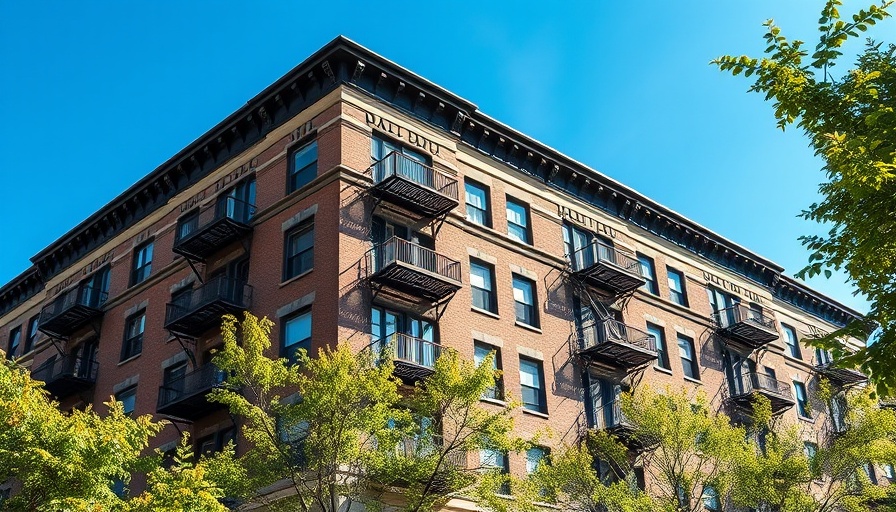
Understanding the Landscape of Brooklyn Basement Rentals
Navigating the world of basement rentals in Brooklyn isn't just about finding a cozy space; it's about understanding the legal intricacies that come with it. Many landlords and renters seek these unique living arrangements for their affordable prices and charming architectural nuances, but they must also contend with specific regulations that govern safety and compliance. From historic brownstones to modern buildings, the appeal of a lower rental cost in Brooklyn often comes with legal considerations that must be navigated carefully.
Why Second Exit Regulations Matter
Central to the safety of basement apartments is an essential aspect known as second exit regulations. Designed to provide a safe escape during emergencies, these regulations are particularly crucial in densely populated areas like Brooklyn, where many dwellings lack direct outdoor access. In a city where safety is paramount, understanding these regulations is not just about legality—it's about ensuring the well-being of occupants.
Do You Know the Rules? A Quick Breakdown of Second Exit Requirements
Per the New York City Housing Maintenance Code and Building Code, every residential unit, including basements, must provide a minimum of two exits. The requirements specify that the secondary exit must be easily accessible and unobstructed, making it critical for landlords and tenants alike to be informed. A common misconception is that a window can suffice as a second exit; however, it must meet specific criteria to ensure it can actually be used in an emergency.
The Reality of Legal Compliance in Basement Rentals
For both homeowners and landlords, compliance with the second exit requirements might dictate whether an apartment can be legally rented out. Failure to meet these criteria can lead to serious legal outcomes, including the potential for eviction or significant fines. Additionally, Brooklyn's regulations may evolve, reflecting an ongoing effort to enhance urban safety, which should prompt landlords to stay informed on any updates.
Hidden Risks: Navigating Emotional and Legal Pitfalls
Renters should recognize the potential emotional and financial implications that come with insufficiently compliant basement rentals. It's not merely about securing a lease; renters should advocate for their rights, ensuring that their potential home meets safety standards. This might include researching the landlord’s history of compliance and checking the condition of exits and windows prior to signing any lease.
Looking Forward: The Future of Basement Rentals in Brooklyn
As Brooklyn continues to grow and evolve, its rental landscape is likely to witness further changes in zoning laws and safety regulations. With a growing population and increased demand for affordable housing, basement units may become a focal point for developers and city planners. Understanding the safety protocols today will help landlords and future renters to navigate this shifting landscape effectively.
Practical Steps for Compliance and Safety
To ensure compliance and create a safe living environment, renters and landlords should collaborate closely. Begin with a comprehensive safety inspection, focusing on emergency exits, smoke detectors, and fire escape routes. Engaging with a local expert or real estate lawyer can also facilitate understanding of the complexities involved and ensure that both parties are protected under the law.
Common Misconceptions About Basement Regulations
One of the frequent misconceptions is the belief that basement units are inherently illegal or unsafe. When appropriately designed and constructed with compliance in mind, these spaces can offer valuable housing options. Educating oneself on the laws and collaborating with knowledgeable professionals can dispel myths and emphasize the value of safety in all living arrangements.
Conclusion: Ensure Safety As You Rent
As you navigate the intricacies of basement rentals in Brooklyn, take the necessary steps to ensure compliance with second exit regulations for a safe living experience. Knowledge is power, and by understanding these regulations, you can enhance your rental experience and protect your interests. Don't hesitate to advocate for your rights by ensuring every aspect of your potential home adheres to safety standards. For those looking to explore further, connect with local real estate experts to stay abreast of any changes in regulations that might impact your living situation.
 Add Row
Add Row  Add
Add 




 Add Row
Add Row  Add
Add 

Write A Comment